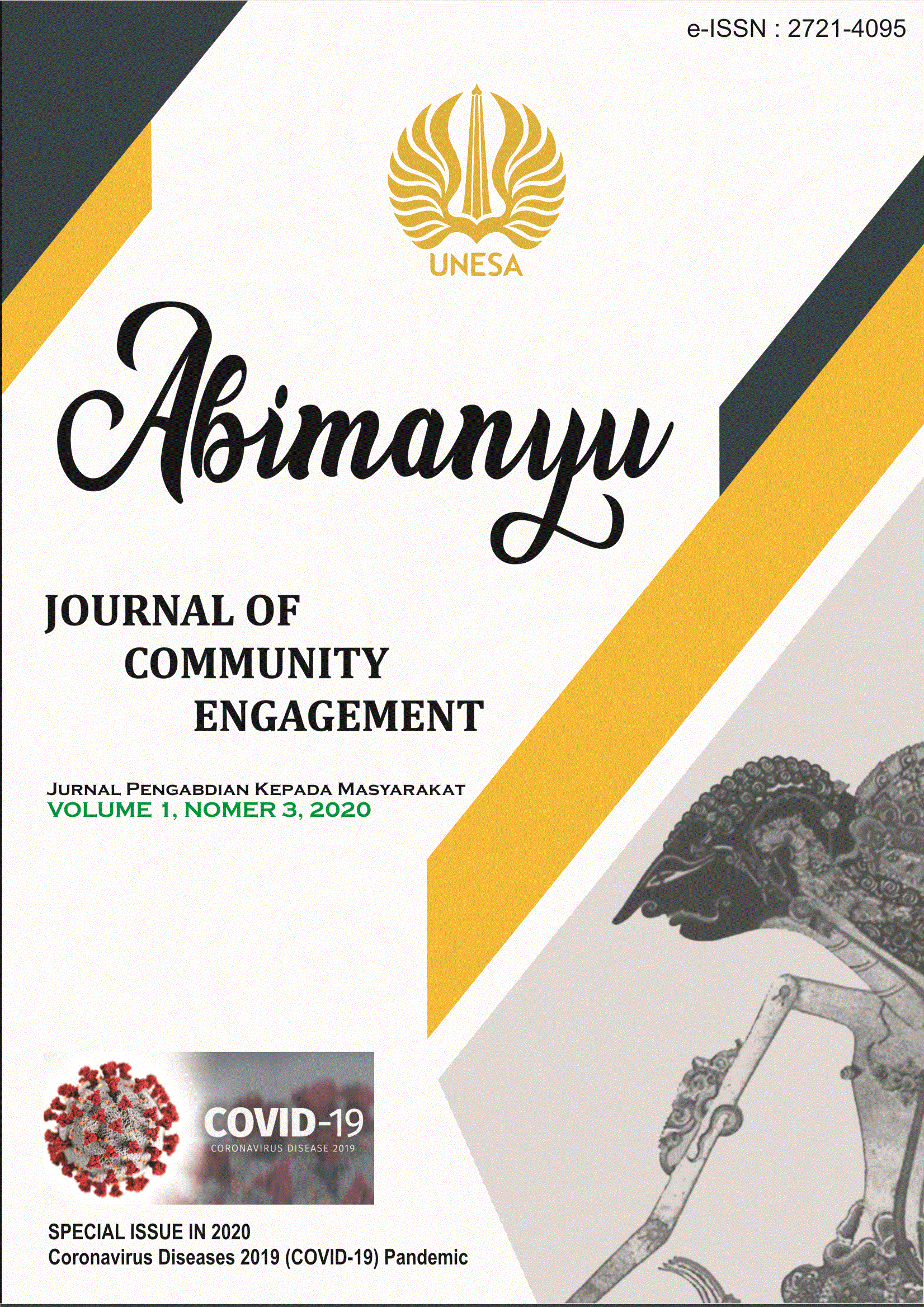Peningkatan Ketahanan Pangan Bagi Masyarakat di Tengah Pandemi Covid 19
DOI:
https://doi.org/10.26740/abi.v1i3.10927Abstract
The Covid 19 pandemic had a very large negative impact on people's lives, both directly in the form of attacks on physical health and indirectly in the form of economic impacts. This is because Covid-19 has made many people lose their jobs, thereby reducing people's income and purchasing power. The decline in purchasing power has an impact on the decrease in the ability of the community to meet basic food needs, thereby reducing food security for the affected communities. One of the community groups experiencing a decrease in the purchasing power of basic necessities is academic staff and outsourcing workers who work in the Faculty of Economics, State University of Surabaya. The increasing need for vitamins, supplements and health equipment (such as masks, handsanitizers, etc.) during Covid-19 has caused a decrease in their purchasing power of basic necessities. This community service (PKM) program is carried out by providing basic necessities and medical equipment assistance to 30 academic staff and outsourcing workers in the FE UNESA. The purpose of this PKM activity is to improve community food security. The subjects of this PKM are academic staff and outsourcing workers in the FE UNESA environment. The implementation method is divided into 4, namely: (1) the preparation stage by observing the conditions experienced by academic staff and outsourcing personnel at the FE UNESA, (2) the needs analysis stage by determining the types of basic food items and medical equipment, and (3) ) the program implementation stage in the form of distribution of basic necessities and medical equipment assistance, (4) the monitoring and evaluation stage, which aims to determine the effectiveness of the program by measuring the success rate of this activity. The provision of assistance of 30 basic food packages and medical equipment was carried out on October 1, 2020 at the Faculty of Economics, UNESA. The results of the evaluation of the implementation of activities which consisted of two indicators, namely the usefulness of the assistance and the implementation of the provision of assistance showed a high score. This indicates that beneficiaries have a high level of satisfaction with the provision of basic food and medical equipment assistance provided by the PKM team.
Downloads
Published
How to Cite
Issue
Section
 Abstract views: 362
,
Abstract views: 362
, PDF Downloads: 248
PDF Downloads: 248





